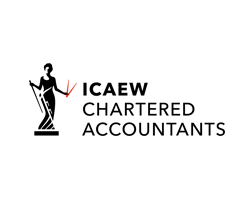July 22nd, 2019Should I Incorporate My Property Business? Part I
Shifting sands, or “the tax sandstorm”
“Should I incorporate my property business?” – Every landlord ever
This is an age-old question, or at least it has been since I’ve been an accountant in practice. In years gone by, the answer was often a straight forward: absolutely not.
So what’s changed? This is probably the last straight forward answer you’ll read from this point on: tax. Over the course of this six blog series, I’ll be discussing the factors that should be considered when attempting to answer this question.
There’s no definitive answer that will suit everybody at the end of this series of blogs so there’s no point in skipping to the last one and taking a sneak a peak at the ending. Every person’s circumstances are different when it comes to incorporating their property business and some scenarios are more clear cut than others.
From this point on, I’ll be applying 2019/20 tax rates and thresholds to all calculations and assuming that the full finance cost restriction (more on this below) is now in force.
In this blog we’ll be discussing the environment of tax changes which have led us to this point.
Disclaimer: a lesson from physics
Let’s make something clear from the outset: the question of incorporation is far from easy to answer with any degree of certainty. Any adviser who says otherwise doesn’t really understand what’s going on. Below is a quote from the late, great physicist Richard Feynman:
“If you think you understand quantum mechanics, you don’t understand quantum mechanics”
The same principle applies here.
The reason this is such a difficult question is that issues arise across a number of areas making tax planning almost best-guess rather than the exact science most clients come to expect. Probabilistic versus deterministic, if you will. Quantum tax planning!
Anyway, I digress… The content discussed in this series is the extent of what can be provided for free without a full tax planning exercise being undertaken so please remember that you should always take professional advice in this area.
Shifting sands
Somebody in the government really doesn’t like landlords and property owners. In recent years, we’ve seen:
- The introduction of additional stamp duty on second residential properties
- The introduction of the Annual Tax on Enveloped Properties (ATED)
- A reduction in capital gains tax rates except for residential properties
- A reduction, and then further reduction, in the final period of deemed occupancy for principal private residence (PPR) relief
- The practical abolition of lettings relief (from April 2020)
- The introduction of a 30 day payment deadline for tax due on residential property capital gains
None of these, however, are driving the incorporation question. That falls squarely on the restriction on the rate of tax relief available for finance costs. There is some badly thought-out tax law around these days but this one takes the crown.
The restriction means that residential landlords can only claim tax relief on their finance costs at the basic rate of income tax, currently 20%. For higher rate taxpayers, paying tax at a marginal rate of 40%, this represents a considerable rise in their tax liabilities.
We are currently going through the gradual introduction of the restriction, but the way it will work from April 2020 is to remove finance costs from the calculation of profit altogether. This means that total taxable income will be artificially higher than the true, economic reality.
Tax doesn’t have to be taxing fair
A landlord with a property business with finance costs that breaks even, could well find that they now have a tax bill. The more highly geared (this is just finance speak for “funded by loans”) the property business is, the worse off the landlord will be.
An extreme example would be a landlord with £60,000 of rental income and £50,000 of mortgage interest. Under the old rules, no tax would be due as the £10,000 profit would be covered by the taxpayer’s personal allowance. The interest relief restriction now means the landlord has taxable income of £60,000. This is then taxed as follows:
- First £12,500 @ 0%
- Next £37,500 @ 20%: £7,500
- Next £10,000 @ 40%: £4,000
Total tax so far is £11,500.
From this we can deduct 20% of the mortgage interest. It’s not that straight forward though; further restrictions mean only £47,500 of the mortgage interest can be included in this calculation (the £2,500 unused amount is carried forward to 2020/21). We can, therefore only reduce our landlord’s tax bill by £9,500.
This means our landlord’s tax bill has risen from nil under the old rules to £2,000.
But wait, there’s more!
As well as less tax relief, the restriction can lead to unintended* consequences:
- Brought forward property losses are used up faster
- Those repaying student loans will have to pay more back each year
- The artificial increase in taxable income can take the landlord beyond key tax thresholds:
- From basic rate to higher rate tax
- Beyond £50,000 and into repayment of child benefit
- Beyond £100,000 for clawback of the personal allowance
- From higher rate tax into additional rate tax
- Beyond £150,000 for tapering of annual pension allowances
All of these lead to higher tax bills.
Now imagine our landlord from earlier has an outstanding student loan and claims child benefit for two children. Our landlord would also need to repay nearly £3,700 of their student loan and around £1,800 of child benefit.
So out of the £10,000 generated by their property business, our landlord would need to pay a staggering £7,500 to HMRC.
An horrendous situation, for sure, but absolutely not unheard of, especially among professional landlords. Clearly, incorporation should seriously be considered in cases such as these.
In the next blog, I’ll be discussing how the future can impact on the decision to incorporate.
On to Part II
*I’m being very generous to the lawmakers here





